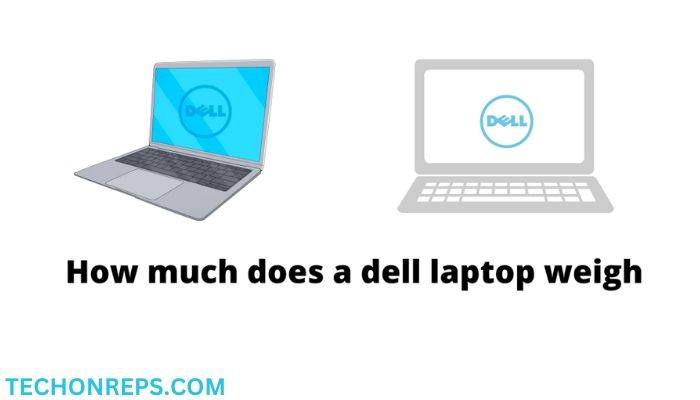How Much Does a Laptop Weigh? What You Need to Know Before You Buy
In today’s fast-paced world, where remote work and mobile lifestyles are becoming increasingly common, the importance of laptop weight cannot be overstated. Gone are the days when people were tied to their desks, working on bulky desktop computers. With the rise of technology and the internet, people now have the freedom to work from anywhere, whether it’s a coffee shop, a co-working space, or even a beach.
The need for lightweight and portable devices has become paramount. People want to be able to carry their laptops with them wherever they go, without feeling burdened by the weight. Whether you’re a digital nomad, a frequent traveler, or simply someone who values convenience and mobility, the weight of your laptop is a crucial factor to consider when making a purchase.

Understanding Laptop Weight: What Does it Really Mean?
Laptop weight refers to the physical mass of the device, typically measured in pounds or kilograms. It includes the weight of the laptop itself, as well as any additional components such as the battery, keyboard, and screen. The weight of a laptop can vary significantly depending on its size, materials used, and the hardware components it contains.
Laptop weight is typically measured by manufacturers using a scale. The laptop is placed on the scale and its weight is recorded. This measurement is then used to provide consumers with an accurate representation of how heavy the device is.
Several factors contribute to the overall weight of a laptop. These include the size and thickness of the device, the materials used in its construction (such as aluminum or plastic), and the hardware components it contains (such as the processor, graphics card, and storage drive). All of these factors must be taken into consideration when evaluating the weight of a laptop.
The Impact of Laptop Weight on Portability and Mobility
The weight of a laptop has a direct impact on its portability and mobility. A lighter laptop is easier to carry and transport, making it more convenient for people who are constantly on the move. Whether you’re a digital nomad traveling the world or a business professional who frequently attends meetings and conferences, having a lightweight laptop can make a world of difference.
A heavy laptop can be a burden to carry, especially if you have to walk long distances or navigate through crowded spaces. It can strain your shoulders and back, leading to discomfort and fatigue. On the other hand, a lightweight laptop can be slipped into a backpack or briefcase without adding much weight or bulk. This allows you to move freely and comfortably, without feeling weighed down by your device.
For remote workers and travelers, portability is key. Being able to work from anywhere means having the flexibility to set up your workspace wherever you go. Whether you’re sitting in a café, waiting at an airport, or lounging by the pool, a lightweight laptop allows you to work comfortably and efficiently. It gives you the freedom to be productive no matter where you are, without sacrificing convenience or comfort.
How Laptop Weight Affects Performance and Battery Life
Contrary to popular belief, the weight of a laptop does not directly impact its performance. The performance of a laptop is determined by its hardware components, such as the processor, graphics card, and RAM. These components dictate how fast and efficient the laptop can perform tasks such as running software applications, editing videos, or playing games.
However, the weight of a laptop can indirectly affect its performance in certain situations. For example, a heavier laptop may have better cooling capabilities due to larger fans or heat sinks. This can prevent the device from overheating during intensive tasks, allowing it to maintain optimal performance for longer periods of time.
Additionally, the weight of a laptop can impact its battery life. A heavier laptop typically requires a larger battery to power its hardware components. This larger battery can provide more energy and therefore, longer battery life. On the other hand, a lighter laptop may have a smaller battery, resulting in shorter battery life.
It’s important to note that battery life is not solely determined by the weight of a laptop. Other factors, such as the efficiency of the hardware components, the screen brightness, and the power management settings, also play a significant role. However, the weight of a laptop can be an indicator of its battery capacity and potential battery life.
The Different Types of Laptops and Their Weight Ranges
Laptops come in various shapes and sizes, each with its own weight range. Understanding the different types of laptops and their weight ranges can help you make an informed decision when choosing a device that suits your needs and lifestyle.
1. Ultrabooks: Ultrabooks are lightweight and slim laptops that prioritize portability and performance. They typically weigh between 2.5 to 3.5 pounds (1.1 to 1.6 kilograms). Ultrabooks are ideal for travelers and professionals who require a powerful yet lightweight device for work or entertainment.
2. Traditional laptops: Traditional laptops are the most common type of laptop and come in a wide range of sizes and weights. They can weigh anywhere from 4 to 8 pounds (1.8 to 3.6 kilograms), depending on their size and hardware components. Traditional laptops are suitable for a variety of uses, from casual web browsing to intensive tasks such as video editing or gaming.
3. Gaming laptops: Gaming laptops are designed for gamers who require high-performance hardware to run demanding games. These laptops are typically larger and heavier than traditional laptops, weighing between 5 to 10 pounds (2.3 to 4.5 kilograms). Gaming laptops prioritize power over portability and are not recommended for frequent travelers or those who prioritize lightweight devices.
4. Convertible laptops: Convertible laptops, also known as 2-in-1 laptops, offer the flexibility of both a laptop and a tablet. They typically have a detachable or foldable screen that can be used as a tablet when detached from the keyboard. Convertible laptops come in various sizes and weights, ranging from 2.5 to 4 pounds (1.1 to 1.8 kilograms). These devices are ideal for users who value versatility and portability.
Choosing the Right Laptop Weight for Your Needs and Lifestyle
When choosing a laptop, it’s important to consider your needs and lifestyle to determine the right weight for you. Here are some factors to consider:
1. Portability requirements: If you’re constantly on the move and need a laptop that you can easily carry with you, a lightweight device such as an ultrabook or a convertible laptop may be the best choice. These devices are designed to be slim and lightweight, making them ideal for travelers and remote workers.
2. Performance needs: If you require a high-performance laptop for tasks such as video editing, gaming, or running resource-intensive software applications, you may need to prioritize performance over portability. In this case, a heavier laptop with more powerful hardware components may be necessary.
3. Budget constraints: The weight of a laptop can also impact its price. Generally, lighter and more portable laptops tend to be more expensive due to the use of premium materials and advanced manufacturing techniques. If you have a limited budget, you may need to compromise on weight in order to find a laptop that fits your budget.
4. Usage patterns: Consider how you plan to use your laptop on a daily basis. If you primarily use your laptop for web browsing, email, and basic productivity tasks, a lightweight device may be sufficient. However, if you frequently work with large files, edit videos, or play games, you may need a heavier laptop with more powerful hardware.
Matching the weight of your laptop to your needs and lifestyle is crucial in order to ensure that you have a device that meets your requirements and provides a comfortable user experience.
Tips for Reducing Laptop Weight and Improving Portability
If you already own a laptop and find it too heavy or bulky, there are several strategies you can employ to reduce its weight and improve its portability:
1. Upgrade to a lighter model: If your current laptop is too heavy for your liking, consider upgrading to a lighter model. Technology is constantly evolving, and newer laptops are often lighter and more portable than their predecessors.
2. Opt for a smaller screen size: The size of the screen can significantly impact the weight of a laptop. If you don’t require a large screen for your work or entertainment needs, consider opting for a smaller screen size. This can help reduce the overall weight of the device.
3. Choose lightweight materials: When purchasing a new laptop, pay attention to the materials used in its construction. Laptops made from lightweight materials such as aluminum or carbon fiber tend to be lighter than those made from plastic or other heavier materials.
4. Consider external accessories: There are several external accessories available that can help improve the portability of your laptop. For example, a lightweight laptop bag or backpack with padded straps can make it easier to carry your device. Additionally, using a wireless mouse and keyboard can eliminate the need to carry additional cables and accessories.
By implementing these strategies, you can reduce the weight of your laptop and make it more portable, allowing you to work or play on the go without feeling burdened by your device.
The Future of Laptop Weight: Trends and Innovations to Watch Out For
As technology continues to advance, we can expect to see further innovations in laptop weight reduction. Here are some trends and innovations to watch out for in the future:
1. Advancements in materials and manufacturing: Manufacturers are constantly exploring new materials and manufacturing techniques to create lighter and more durable laptops. For example, the use of magnesium alloys and carbon fiber composites can help reduce the weight of laptops without compromising on strength or durability.
2. The impact of new technologies on laptop weight: Emerging technologies such as foldable displays and miniaturized components have the potential to revolutionize laptop design and reduce weight. For example, foldable laptops with flexible screens could allow for more compact and lightweight devices.
3. Integration of cloud computing: With the increasing popularity of cloud computing, we may see a shift towards lighter laptops that rely more on cloud-based storage and processing power. This could reduce the need for large storage drives and powerful hardware components, resulting in lighter and more portable devices.
As these trends and innovations continue to evolve, we can expect to see laptops becoming even lighter and more portable, making it easier for people to work and stay connected on the go.
Common Myths and Misconceptions About Laptop Weight
There are several common myths and misconceptions surrounding laptop weight. Let’s debunk some of these misconceptions and separate fact from fiction:
1. A heavier laptop is always more powerful. The weight of a laptop does not directly correlate with its performance. A heavier laptop may have more powerful hardware components, but it’s the specifications of these components that determine the performance, not the weight.
2. Lightweight laptops are not durable. Lightweight laptops can be just as durable as their heavier counterparts. The durability of a laptop depends on factors such as the materials used in its construction, the build quality, and the manufacturing standards. Many lightweight laptops are made from high-quality materials that are both lightweight and durable.
3. Lightweight laptops have poor battery life. The weight of a laptop does not determine its battery life. Battery life is influenced by various factors such as the efficiency of the hardware components, the screen brightness, and the power management settings. While a heavier laptop may have a larger battery, it doesn’t necessarily mean it will have better battery life.
4. Lightweight laptops are more expensive. While it’s true that some lightweight laptops can be more expensive due to the use of premium materials and advanced manufacturing techniques, there are also affordable lightweight options available. The price of a laptop is determined by various factors such as the brand, specifications, and features, not just the weight.
It’s important to separate fact from fiction when considering laptop weight in order to make an informed decision based on your needs and preferences.
Conclusion: Making an Informed Decision When Buying a Laptop Based on Weight
In conclusion, the weight of a laptop is an important factor to consider when making a purchase. The rise of remote work and mobile lifestyles has increased the demand for lightweight and portable devices that can be easily carried and used on the go.
Understanding laptop weight and its impact on portability, performance, and battery life can help you make an informed decision when choosing a laptop that suits your needs and lifestyle. Consider factors such as your portability requirements, performance needs, budget constraints, and usage patterns to determine the right weight for you.
By following tips for reducing laptop weight and improving portability, you can further enhance your user experience and make your laptop more convenient to carry and use.
As technology continues to advance, we can expect to see further innovations in laptop weight reduction. Advancements in materials and manufacturing, as well as the integration of new technologies, will contribute to the development of even lighter and more portable laptops in the future.
In the end, it’s important to remember that laptop weight is just one aspect to consider when purchasing a laptop. It’s equally important to evaluate other factors such as performance, display quality, storage capacity, and connectivity options to ensure that you have a device that meets all your needs and provides a seamless user experience.



